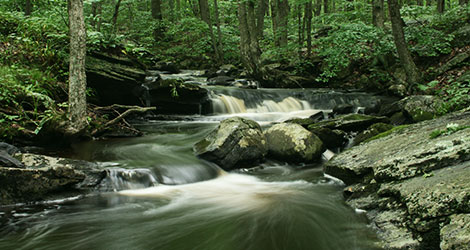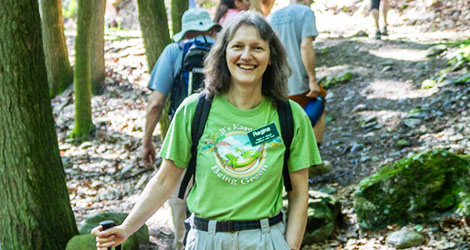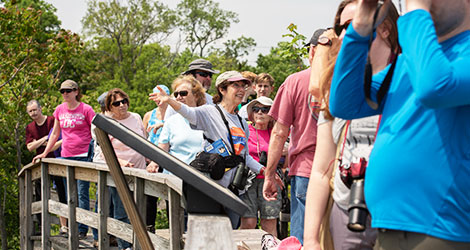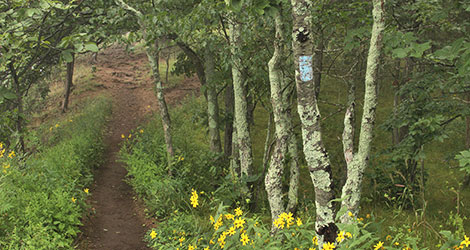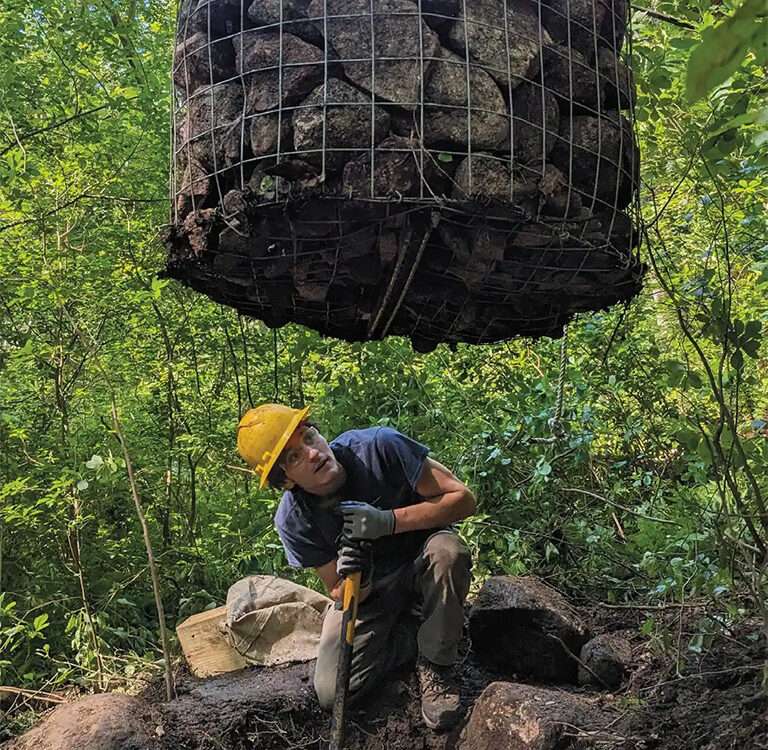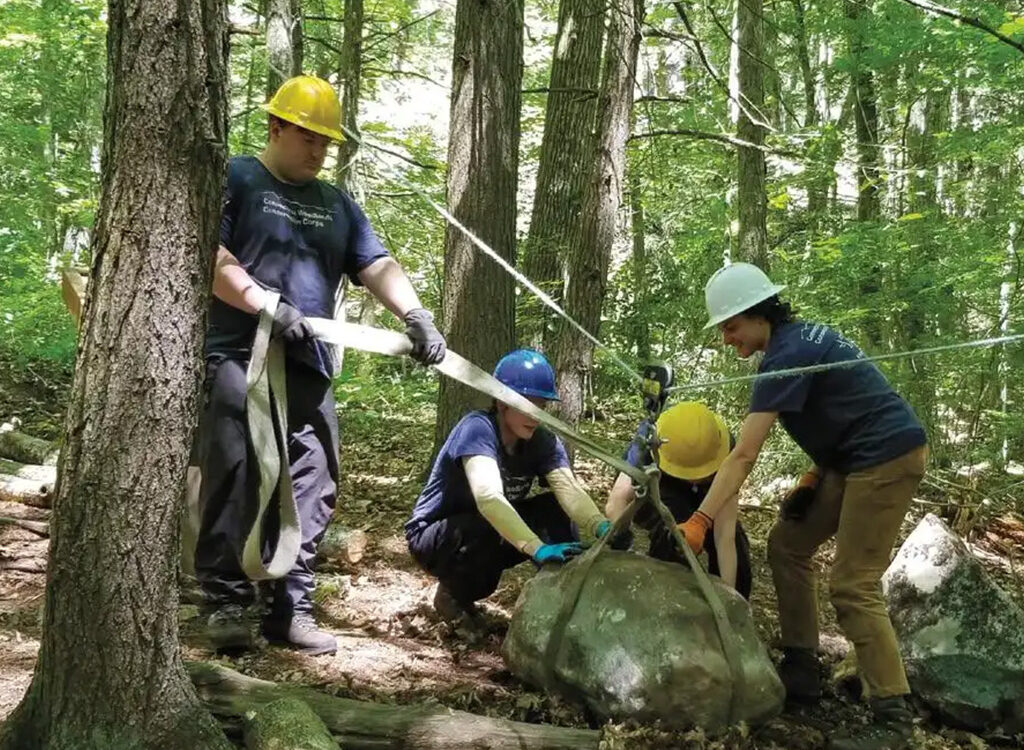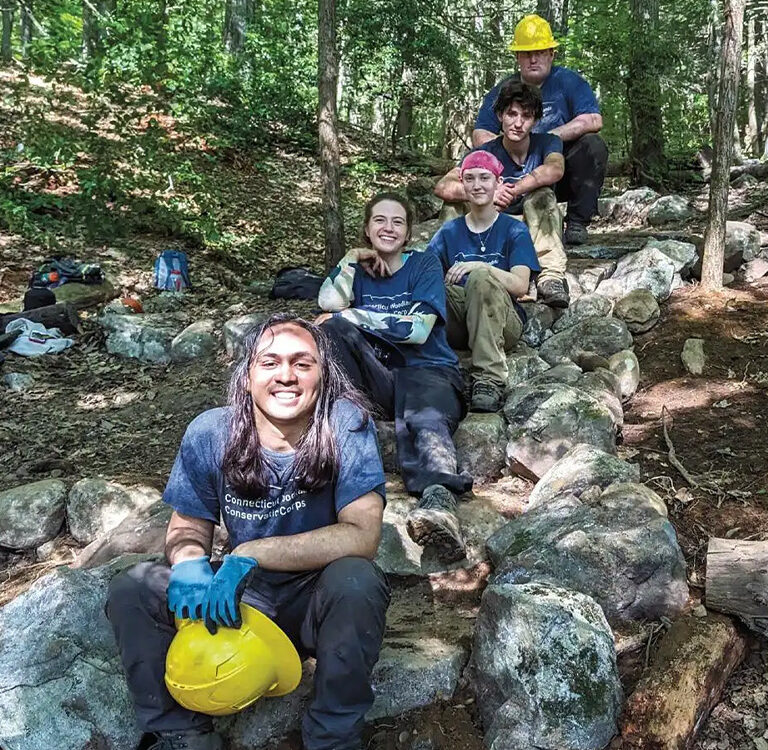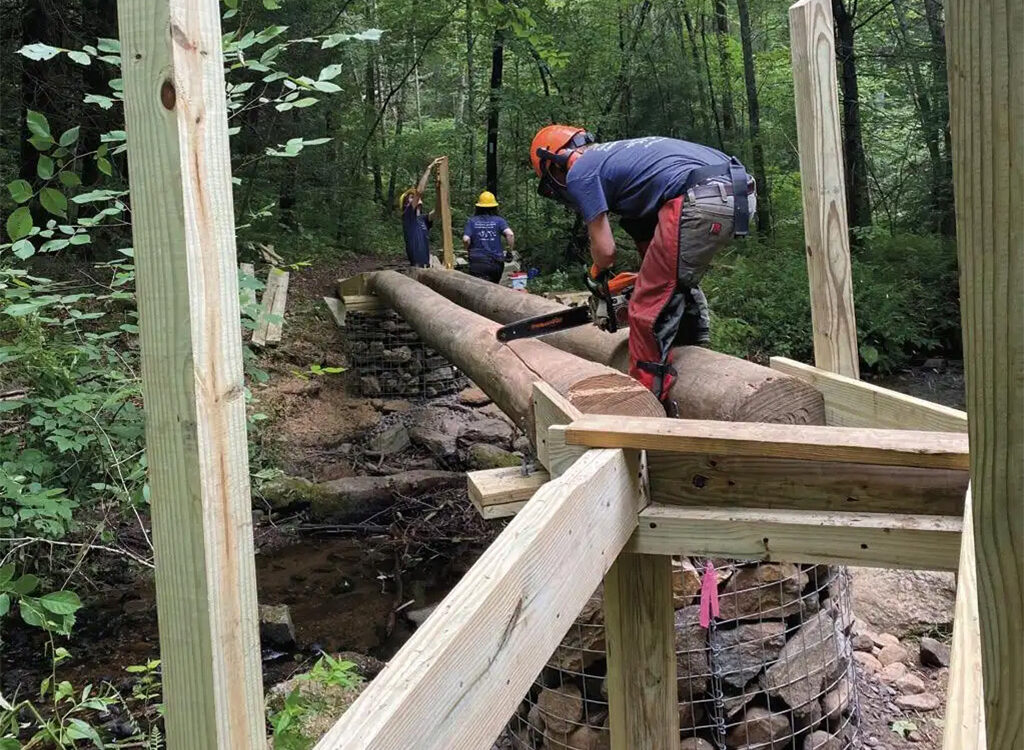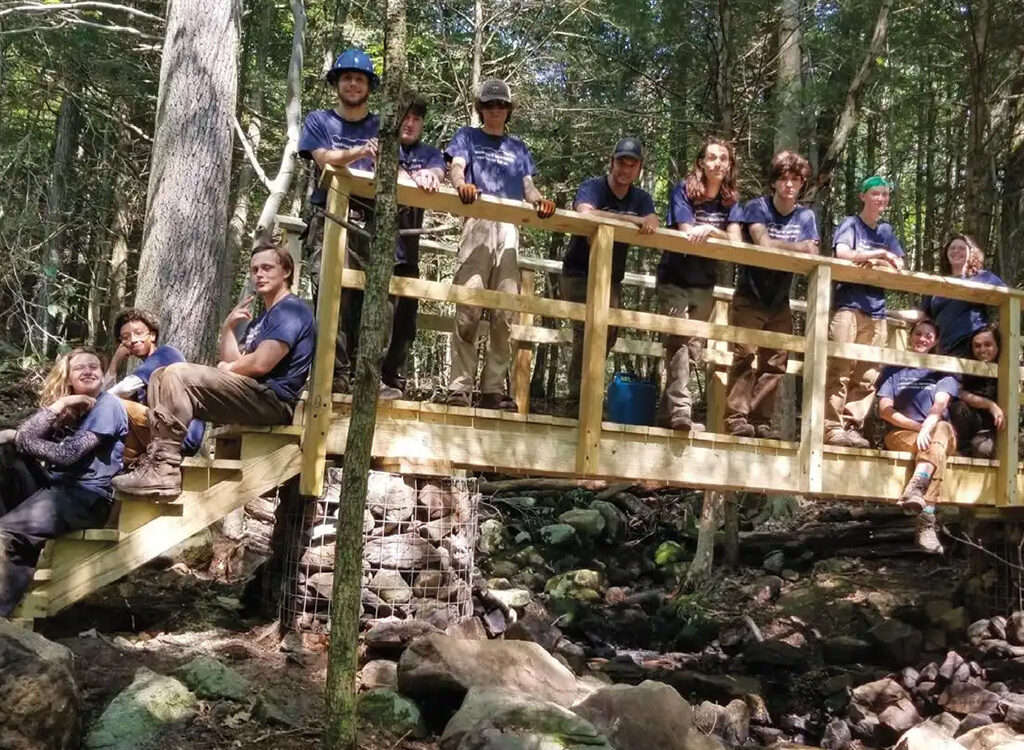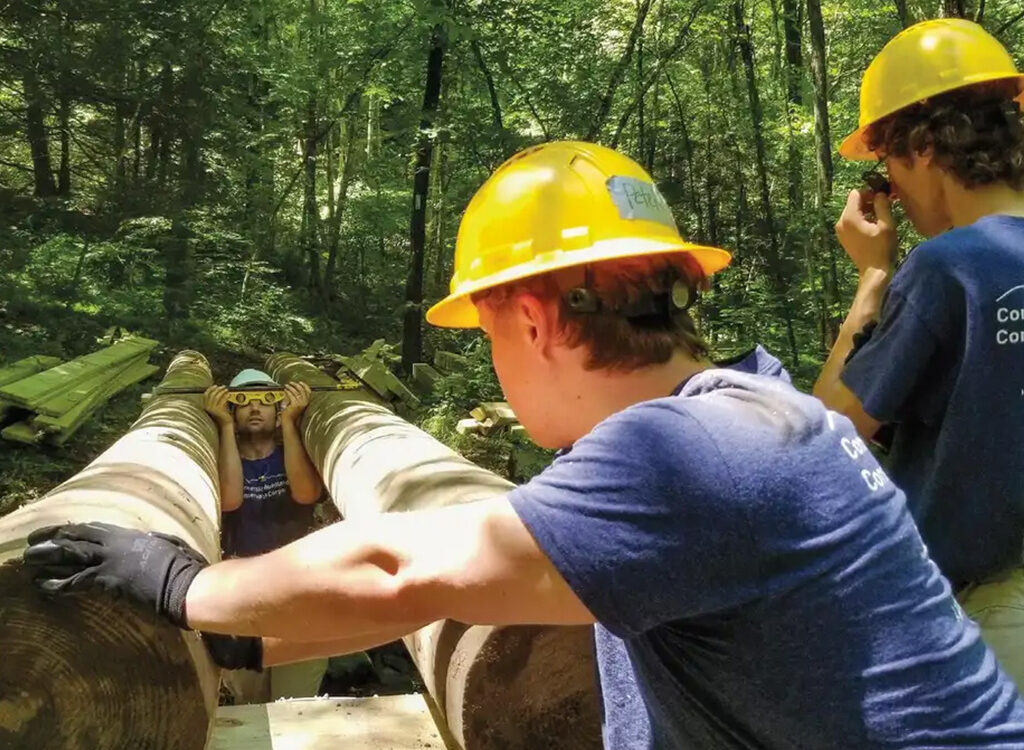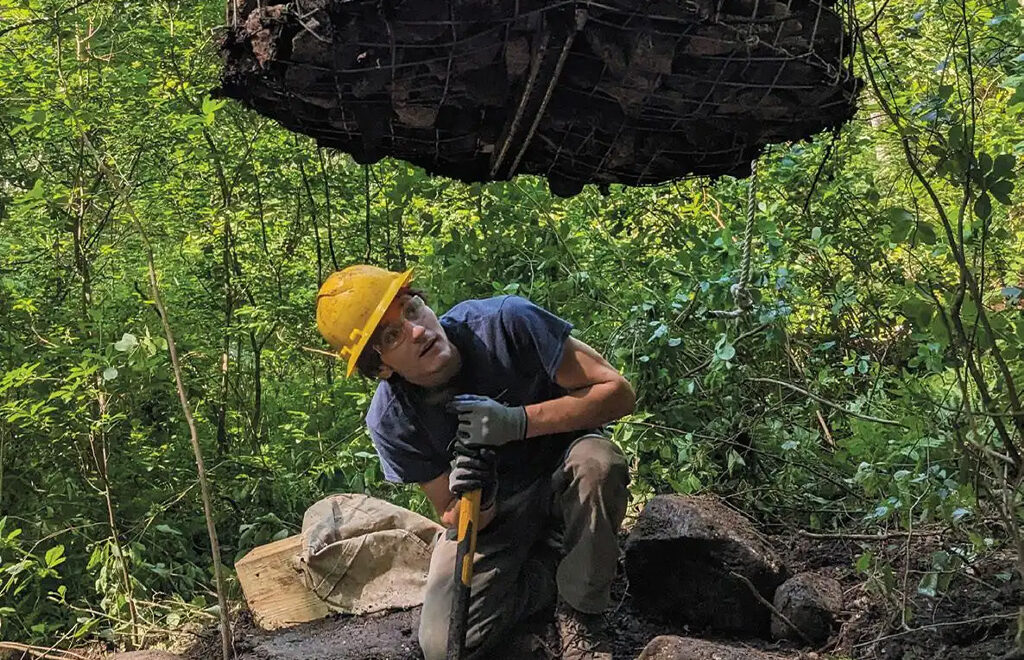
Discovering Your Crew
A member of the Connecticut Woodlands Conservation Corps reflects on a summer spent working in the woods.
By Sunny Ramos
Greater writers than I have captured the serene quiet of Connecticut trails. It seems that as long as there have been those to enshroud in their calm beauty, the woods have provided a refuge for any wandering soul.
It may be surprising, then, that I find amongst the mountain laurels and towering pines a community unlike any I’ve known. As a member of this summer’s Connecticut Woodlands Conservation Corps, I’ve learned as much about myself as I have about my crew. Despite being from all over Connecticut and New York, with varying backgrounds and trail experience, we’ve become fast friends and excellent coworkers. These people have taught me to live deliberately. No one wants summer to end.
The hourlong drive to Peoples State Forest, where we will spend the next eight days, is an opportunity to catch up with members of the Rock Barbarians, one of two summer 2024 trail work crews. Peoples is one of several state forests in Barkhamsted, a quiet, historical town in northern Connecticut. The campground entrance sits across from the beautiful Farmington River, a welcome recess after long days spent hauling rocks and hiking tools.
Setting up camp and idly chatting re-energizes our crew after a scrambled morning spent organizing tools, learning the details of our assignment, and buying food for the week. The campsite is situated in a grove of impossibly tall pines that hug the central fire pit like impassive guardians. I hear about Jane’s weekend and then Nicole’s before the conversation shifts by way of laughter. My crew is bright, quick-witted, and hilarious, and the hole left in my heart when we’re apart fills faster than we could do with a shovel when we reunite.
Typical mornings smell of oatmeal and peanut butter. The air is energized. This work would be difficult for any motley crew. But this job takes more than sheer determination and strength; it also demands perspective. In every crew member’s eyes, I see a vision of a smooth rock staircase climb at the beginning of the Jesse Girard Trail’s right branch.
Building a rock staircase is backbreaking work. The inimitable Wayne Fogg, leader of the CFPA volunteer crew “The Rock Stars,” says that trail rocks must be “at least 150 to 300 pounds.” Moving rocks of that size takes a ton of effort. They must be lashed to the highline rig and then quarried into position. Raw grit is important, but when it comes to safety, trust and communication go a lot further than hard hats and gloves. That trust isn’t just built at the worksite; it comes together piece by piece in the form of shared jokes, hardships, and life-changing experiences. Sweaty, milelong hikes in the rain are worth the exhaustion for the elation we feel at the conclusion of a difficult project.
I find amongst the mountain laurels
and towering pines a community unlike
any I’ve known.
Still, hiking up 200 feet of steep hill a dozen times and using a complex series of wire pulleys to haul 300-pound rocks back and forth drives home how important trust is. Without a word, crew members help one another flip a massive rock into position, avoiding each dusty root and treacherous foothold.
We’re lucky to feel connected to the local community while we work. The Jessie Girard is a popular trail and a daily stream of hikers gives us the opportunity to discuss the project with the people we do it for. Note: if the rules permit, please bring your dog to our trails while we’re working. The morale boost is unparalleled.
In between workdays, we also encounter a number of characters by the river, at the nearby Barkhamsted Historical Society, and the local grocery store. The kindness and curiosity we are shown drives home one of the central themes of this work: community. I started this position familiar with the woods as a place of solace; I’ve found myself in need of their nonjudgemental presence many times before. Working and camping with strangers in pursuit of improving these woods seemed challenging and counterintuitive. But the truth lies in a mantra I’ve carried with me since the early days of training: some lessons have to be learned in the field.
Sunny Ramos is a writer, trail worker, and hobby botanist who grew up walking trails all over New England. A Connecticut native, she is currently pursuing an associate’s degree in journalism and can usually be found in the woods, peering at a tiny plant.

